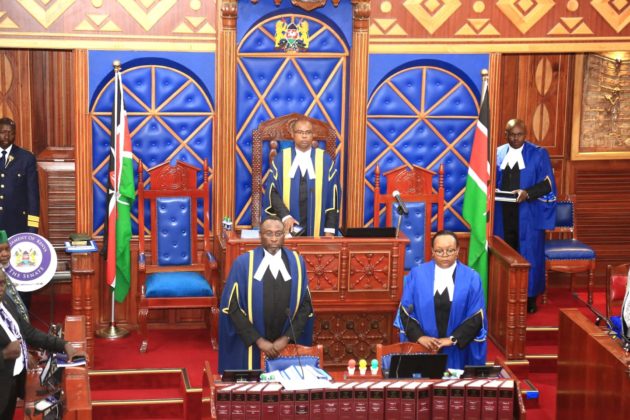The Senate Committee on Devolution has called for a complete and urgent transfer of functions, funding, and legislative support from the national government to counties, warning that partial devolution is hurting service delivery and undermining the Constitution.
During a two-day meeting with the Intergovernmental Relations Technical Committee (IGRTC) in Mombasa, senators led by Wajir Senator Sheikh Abbas Mohamed insisted that counties cannot operate effectively without corresponding financial resources, assets, staff, and laws to support their new roles.
"It is unacceptable for counties to be given responsibilities without the corresponding resources, legal backing, and technical support required to carry them out efficiently," Abbas said.
IGRTC Chairperson Kithinji Kiragu told the committee that the body had completed the unbundling of functions and issued 12 Gazette Notices clarifying which responsibilities belong to counties and which to the national government.
“We now know what belongs to counties and what the national government must let go of,” he said, adding that attention has now shifted to the transfer of funds, assets, staff, and programs.
Kiragu revealed that the initial cost of transferring the functions was estimated at over Sh272 billion, but the Commission on Revenue Allocation is now reviewing the figure, with final recommendations expected by September 2025 to guide the 2026/27 budget.
However, several senators raised concerns that the national government was still interfering with devolved functions.
Marsabit Senator Mohamed Chute criticised the recent merger of the National Cereals and Produce Board with the Kenya National Trading Corporation, calling it a direct violation of the constitutional requirement to devolve agriculture.
"The merging of NCPB is a clear disregard of the constitutional imperative to devolve agriculture," Chute said.
He also took issue with the use of the Housing Levy to fund markets, saying such projects are strictly county responsibilities.
"If there were goodwill, the money should go directly to the counties," the Senator added.
The committee also faulted the failure to include the control of air pollution, noise pollution, public nuisances, and outdoor advertising in the Gazette Notices, despite being a listed county function under the Constitution.
IGRTC admitted the omission and promised to publish a supplementary notice after consultations with the Attorney General.
Concerns over staffing in counties also featured, with Senator Abbas accusing counties of hiring unqualified individuals due to nepotism.
"It defeats the whole purpose of service delivery when counties hire ‘job group R’ graduates simply because they are related to someone powerful," he said, urging for standardised hiring procedures and capacity-building efforts.
The senators also raised the issue of over 400 public buildings whose ownership is still unclear.
IGRTC said they are working with the National Land Commission to issue reservation certificates for unregistered public land, with formal transfers expected to begin in June.
To address widespread legal inconsistencies, the committee resolved to push for the long-delayed Omnibus Bill to align over 94 existing laws with the 2010 Constitution and the Intergovernmental Relations Act.
Key agencies, including the Attorney General’s Office, the Treasury, and the Council of Governors, will be invited to finalise the bill.
As part of next steps, the committee plans to visit counties to assess their readiness to handle the newly delineated functions and will push for legally binding timelines to ensure the national government does not delay implementation or withhold resources.
Senators Karungo Thangwa, Peris Tobiko and Prof. Margaret Kamar, who attended virtually, backed calls for clarity, resources, and respect for devolved units as the July 2025 implementation deadline approaches.

